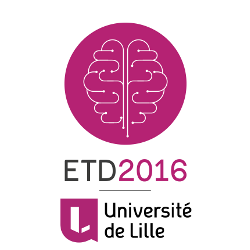Launched Jan. 1st 2015, as a follow up of OpenAIRE and OpenAIREplus, OpenAIRE2020 is the European Commission initiative for an Open Access Infrastructure for Research in Europe which supports open scholarly communication and open science, and access to the research output of European funded projects.
The European Commission implemented an open science policy in her funders programme Horizon2020. This policy includes an open access to publications mandate and an (open) research data policy. OpenAIRE supports projects and researchers in complying to this policy. Furthermore, OpenAIRE's infrastructure supports open science activities in Europe as a whole.
The substantial infrastructure operates on two levels:
Gathering research outputs: OpenAIRE gathers open access content from a network of repositories around Europe. To put this into practice, an integrated suite of guidelines has been developed so that data sources, namely literature and data repositories, OA publishers and CRIS systems can be harvested and their contents made more visible. These guidelines are also adopted by other networks like the LA Referencia network in Latin America, which makes interoperability on a larger, global, scale possible. The portal gives access to both open access publications and EU-funded scientific publications, registered in the more than 600 participating data providers. Also doctoral theses are an important part of the OpenAIRE portal open access content. This massive collection enables OpenAIRE to enrich the data set as a whole and provide services such as monitoring tools for depositing, usage statistics and interchanging enriched data.
Policy harmonisation and community outreach: OpenAIRE has a collaborative and thriving ‘human' network, which is pan-European in nature. The community works to advance open science initiatives at national levels. It has National Open Access Desks (NOAD) in 35 countries, and operates a European Helpdesk system for all matters concerning open access, data management, copyright and repository interoperability. Fact sheets, guides, webinars and other helpful materials are developed.
An important part of OpenAIRE2020 supports the research data pilot implemented in Horizon2020. However, data management support developed is useful for all researchers and projects, not only H2020 funded. Data management plans are for example an important factor in keeping track of data output with associated rights, storage, software and more. More and more doctoral students are faced with the requirement to set up and maintain a data management plan, or are advised to do so. OpenAIRE supports data management and guidance, not only to comply with requirements, but also to help train knowledgeable students who can take responsible data management with them in their future jobs.
OpenAIRE is moving from a publication infrastructure to a more comprehensive infrastructure that covers all types of scientific output, and is establishing an infrastructure to harvest, enrich and store the metadata of scientific datasets. Cross-links from publications to data and funding schemes are supported.
The presentation will outline the activities of OpenAIRE. It will also highlight the following themes: advocating open access, repository guidelines, visibility of the European research environment, sharing and reuse of research data, data management plans.
http://openaire.eu
On the author:
Currently, Inge Van Nieuwerburgh is coordinator scholarly communications at Ghent University Library, Belgium and partner in the OpenAIRE project (http://openaire.eu). The three main themes she deals with are open science, copyright and information literacy.
Throughout her career at Ghent University Library, she has seen the evolution to a digital era with lots of possibilities for research and education. Early on Ghent University Library engaged in opening up her collections online, both through own digitization projects as through a partnership in the Google books project. Inge has been a keen ambassador for open access herself since more than ten years. The idea of providing open access to scientific results to anyone interested, is a useful cause to strive for.
Unfortunately there are quite some legal constraints to be taken care of. As a member of the board of Partnership for Copyright and Society (SA&S -http://www.auteursrechtensamenleving.be/node/121) she is following up on the theme on a Belgian and European level. Engaging researchers into open science is an important part of her job. Awareness and training are key, as is knowledge exchange throughout different communities inside and outside the university. Through OpenAIRE this support of users and producers of scholarly output is coordinated in Europe and it is great to be a part of that.
See my linkedIn profile: https://be.linkedin.com/in/ingevannieuwerburgh
And my twitter profile: @ivnieuwe
- Picture

 PDF version
PDF version

